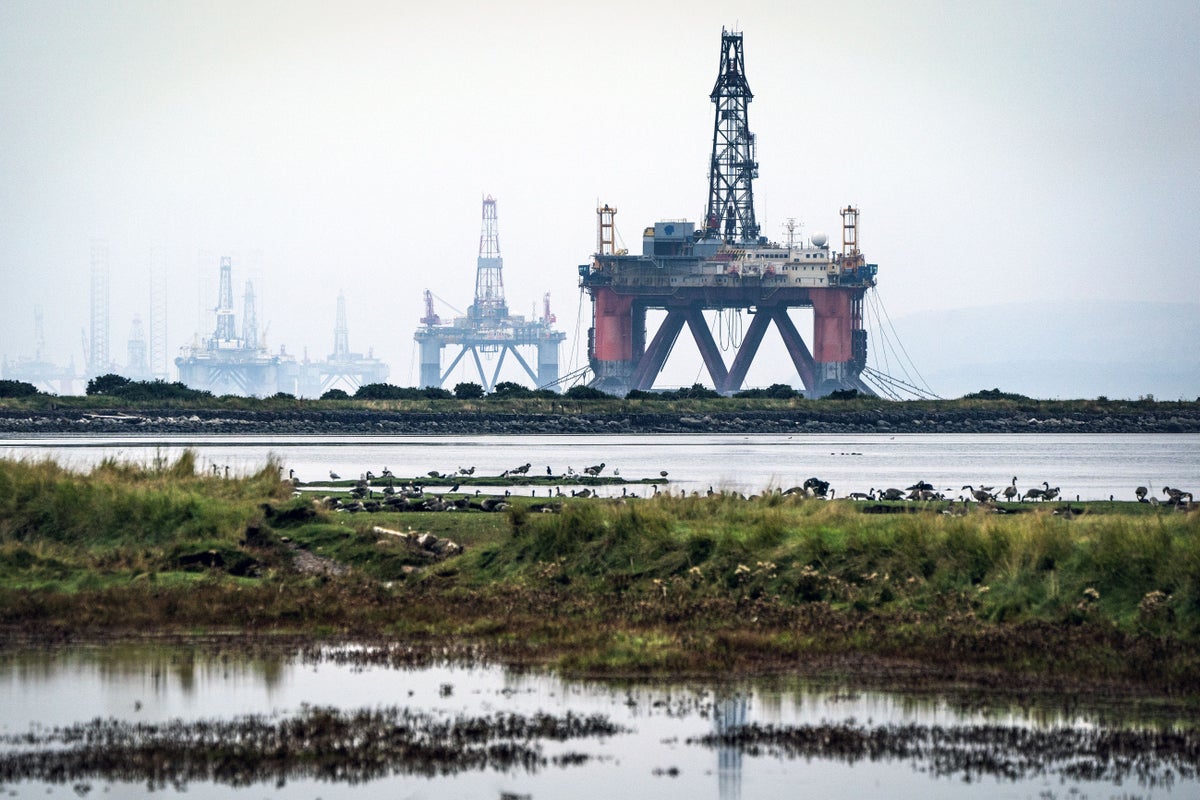
Centrica, the energy giant that owns British Gas, has announced it is reopening its huge Rough gas field in the North Sea to bolster the UK’s supply over the course of what promises to be a difficult winter.
Although the UK gets much of its gas from the North Sea or imports it from Norway, rather than Russia, it remains exposed to a highly volatile market that has seen EU nations scurry to buy up gas this summer and fill up their reverses to 95 per cent of capacity.
And while Germany has 89 days’ worth of gas stored in reserve, France has 103 and the Netherlands 123, Britain has some of the lowest levels in Europe, with just nine days’ bottled up, according to Centrica.
The group said reopening the old field off the coast of Easington in East Yorkshire, mothballed in 2017 when the government declined to subsidise it, would increase Britain’s storage capacity by 50 per cent. It would also enable 30bn cubic feet of gas to be held in reserve for the coldest months.
In terms of terawatt hours (TWh) of power in storage, according to Aggregated Gas Storage Inventory data, the EU as a whole has 1,047TWh in reserve and its tanks are full to 93.93 per cent of capacity.
Among individual nations, Germany comes out on top with 239.9TWh, followed by Italy on 183.9TWh, France on 132.2TWh and the Netherlands on 127.5TWh.
Post-Brexit Britain, meanwhile, languishes behind Ukraine, Austria, Hungary, the Czech Republic, Poland, Slovakia, Spain, Romania and Latvia on just 10.5TWh.
The prospect of a shortage is sufficiently serious in Britain that National Grid boss John Pettigrew has warned of blackouts between 4pm and 7pm on “those deepest, darkest evenings in January and February” should energy availability become insufficient.

Energy regulator Ofgem has also warned of a “significant risk” of a “gas supply emergency” occurring as a result of the turbulent market conditions caused by the war in Ukraine.
European gas supplies were already stretched at the start of this year by a spike in demand coinciding with the economic recovery from the Covid-19 pandemic of 2020 and 2021, only for the Russian invasion of Ukraine in February to complicate the situation even further.
Countries opposed to Vladimir Putin’s brutal military campaign moved quickly to sever commercial ties with Moscow and impose tough sanctions as punishment for its aggressions but doing so meant shunning one of the world’s biggest energy producers and exporters, which previously accounted for around a quarter of European production.
That, in turn, has placed a squeeze on alternative sources of oil and gas from elsewhere and caused prices to surge, resulting in rising domestic power bills for British consumers.

The government has capped prices to keep the average annual household energy bill at £2,500 until April 2023, when it will be reviewed with further increases feared, underlining the folly of relying too heavily on the goodwill of foreign powers to meet domestic energy needs.
“I’m delighted that we have managed to return Rough to storage operations for this winter following a substantial investment in engineering modifications,” Centrica CEO Chris O’Shea said of the development.
“In the short term, we think Rough can help our energy system by storing natural gas when there is a surplus and producing this gas when the country needs it during cold snaps and peak demand.
“Rough is not a silver bullet for energy security, but it is a key part of a range of steps which can be taken to help the UK this winter.”







